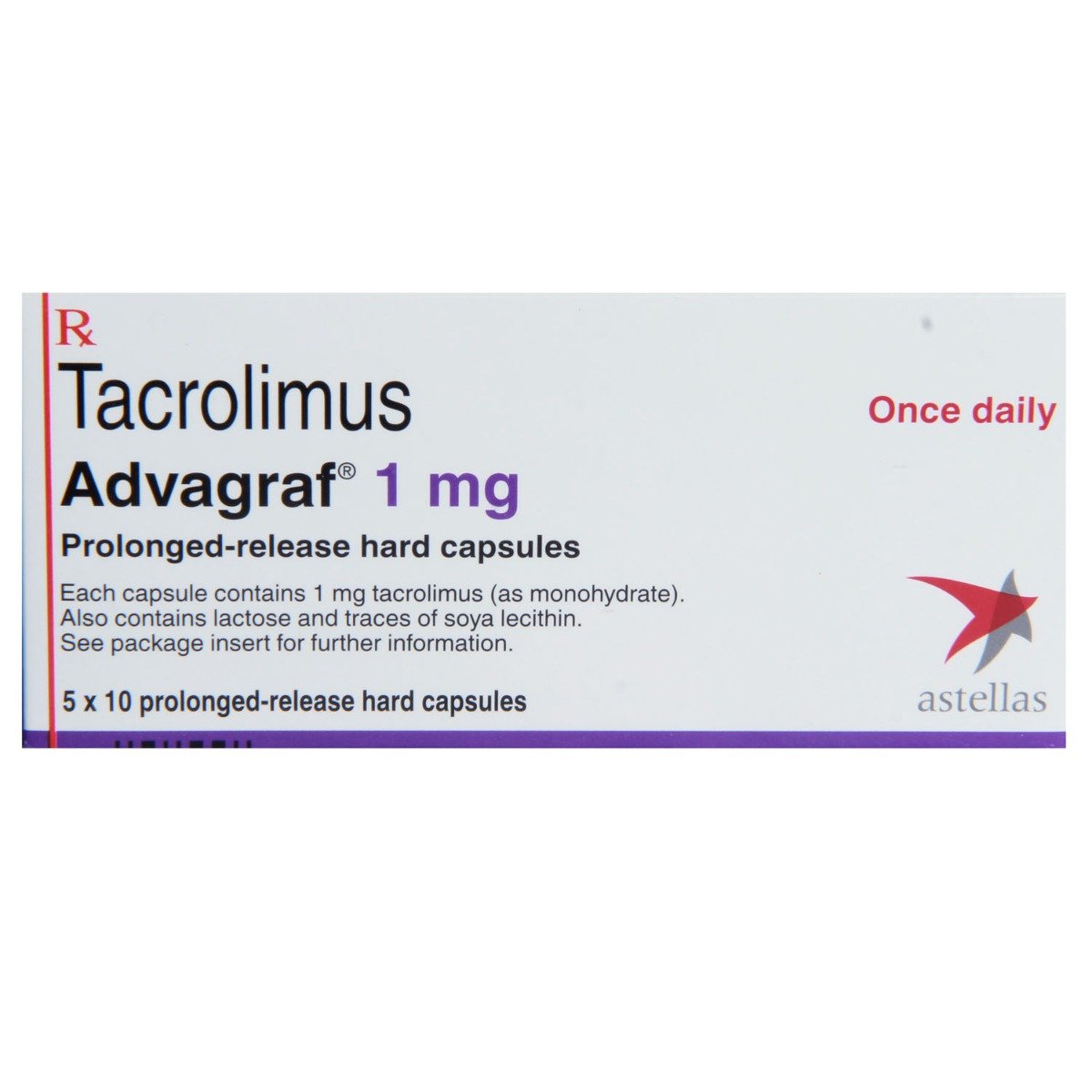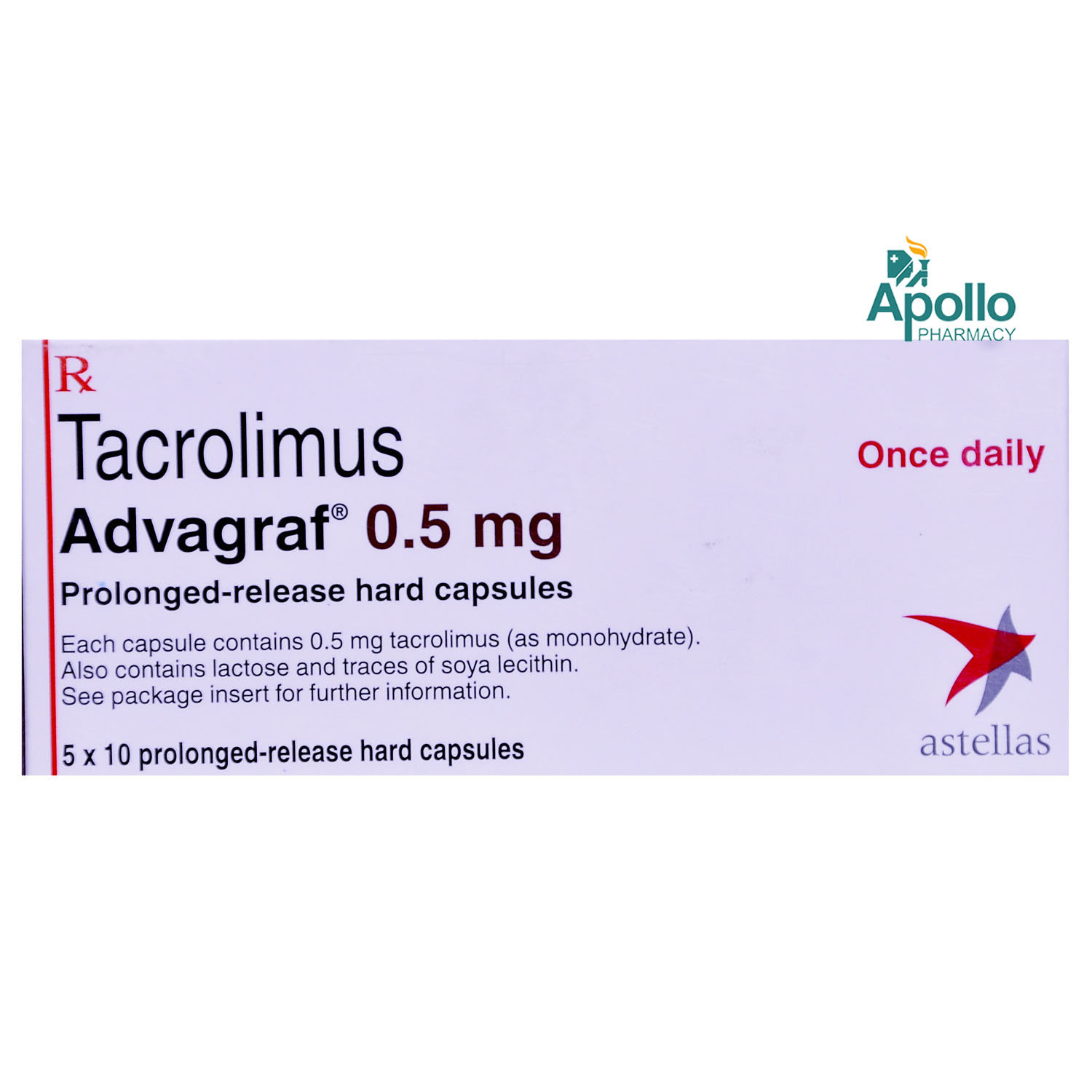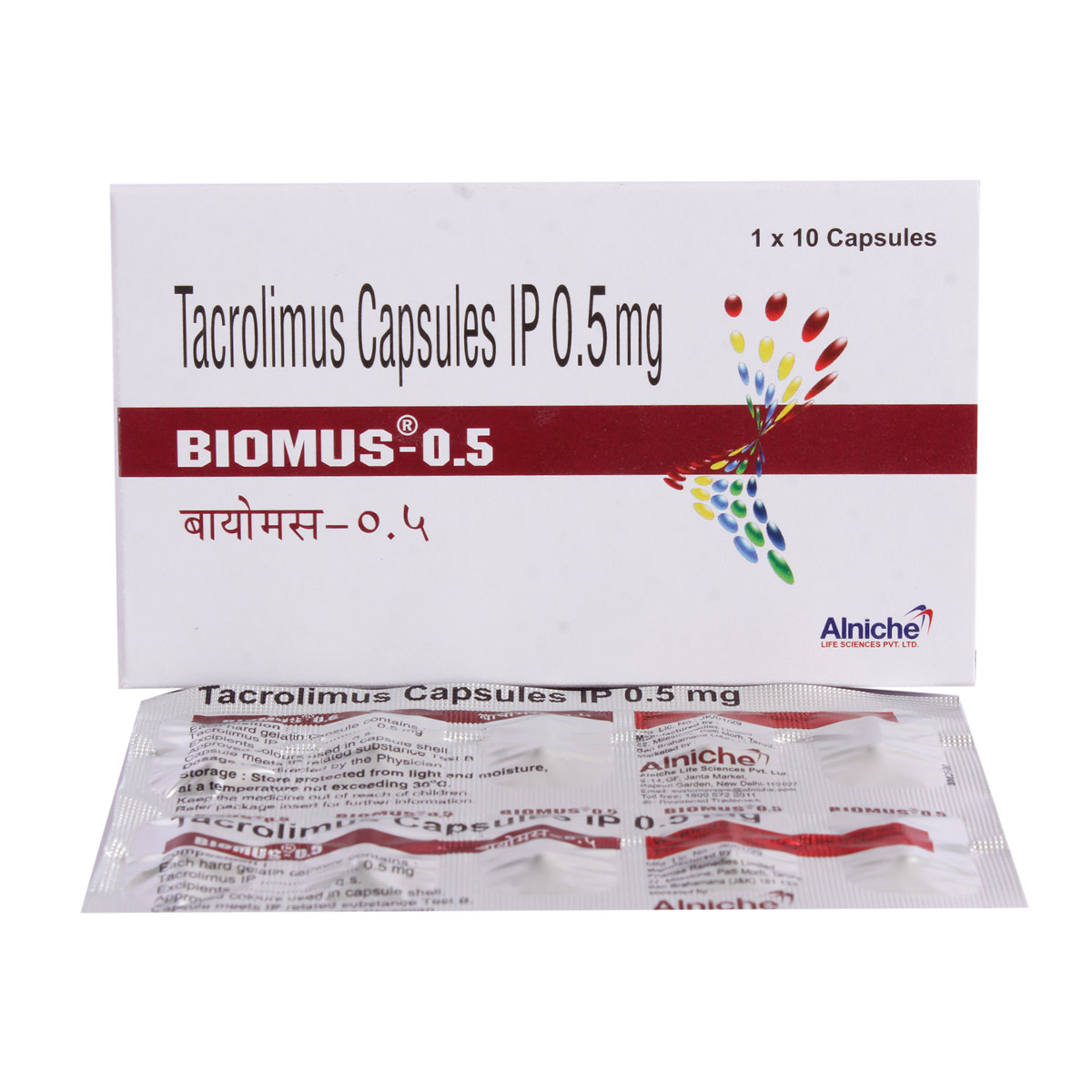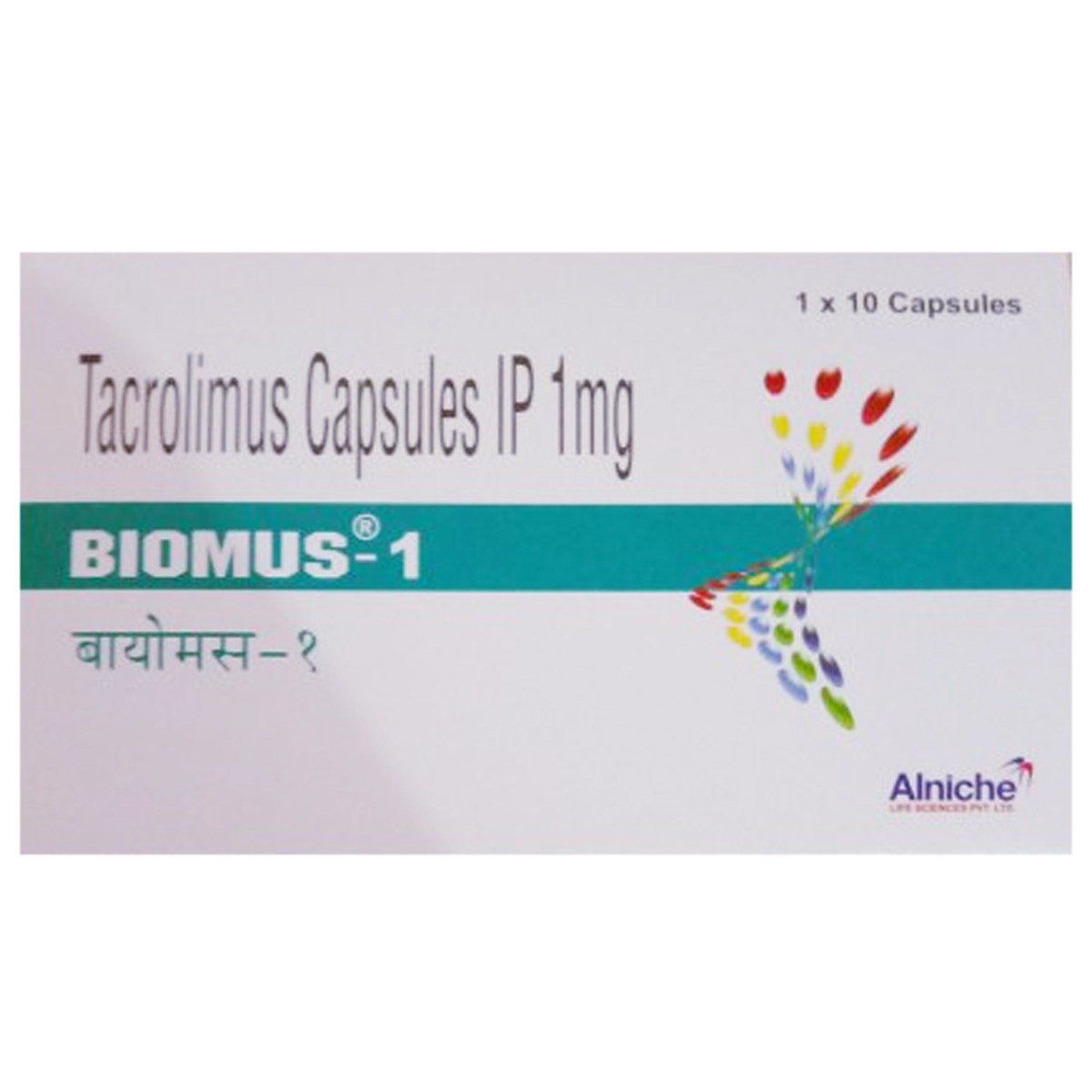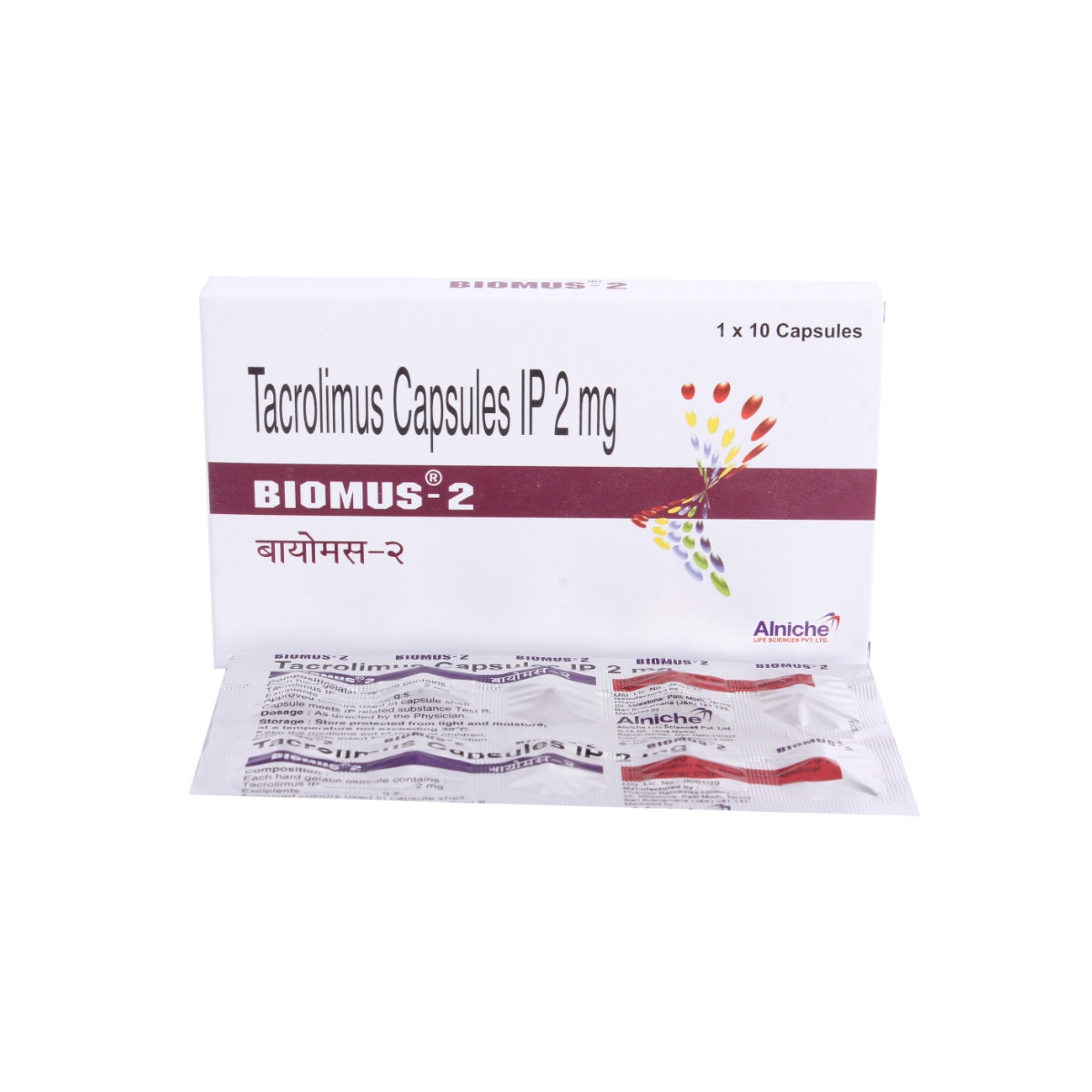Tacrolimus
About Tacrolimus
Tacrolimus belongs to a class of drugs called 'immunosuppressants' used to treat moderate to severe atopic dermatitis (eczema). Atopic dermatitis, also known as eczema, is a common skin condition associated with inflamed and itchy skin patches. The symptoms include itchy, dry, flaky, swollen, rough and irritated skin.
Tacrolimus contains 'Tacrolimus' that works by suppressing the over-reaction of immune cells in the skin to a stimulus. Thus, it reduces allergic reactions and inflammation (redness and swelling).
Use Tacrolimus as prescribed. You are advised to use Tacrolimus for as long as your doctor has recommended it for you based on your medical condition. Some people may experience itching, burning sensation, redness, pain or skin tingling. Most of these side effects of Tacrolimus do not require medical attention and gradually resolve over time. However, if the side effects persist or worsen, please consult your doctor.
Please tell your doctor if you are allergic to Tacrolimus or other medicines. If you are pregnant or a breastfeeding mother, it is advised to consult a doctor before using Tacrolimus. Avoid alcohol consumption with Tacrolimus as it may cause flushing (sudden reddening of face or skin that makes you feel warm and hot). Do not cover or wrap the treated area with a bandage or dressing. Avoid smoking or going near naked flames as the fabric (bedding, clothing, dressings) in contact with Tacrolimus catches fire and burns easily.
Uses of Tacrolimus
Medicinal Benefits
Tacrolimus contains Tacrolimus, an immunosuppressant used to treat moderate to severe atopic dermatitis (eczema) in adults who are not adequately responsive or are intolerant to topical corticosteroids and in children (above 2 years) who failed to respond adequately to topical corticosteroids. Tacrolimus suppresses the overreaction of immune cells in the skin to a stimulus. Thus, it reduces allergic reactions and inflammation (redness and swelling).
Directions for Use
Storage
Side Effects of Tacrolimus
- Itching
- Burning sensation
- Redness
- Pain
- Skin tingling
Drug Warnings
Please tell your doctor if you are allergic to Tacrolimus or other medicines. If you are pregnant or a breastfeeding mother, it is advised to consult a doctor before using Tacrolimus. Avoid alcohol consumption with Tacrolimus as it may cause flushing (sudden reddening of face or skin that makes you feel warm and hot). Do not cover or wrap the treated area with a bandage or dressing. Avoid smoking or going near naked flames as the fabric (bedding, clothing, dressings) in contact with Tacrolimus catches fire and burns easily. Please avoid contact with eyes, nose or mouth as it may irritate. Do not shower, bathe or swim immediately after applying Tacrolimus as it may wash off Tacrolimus. If Tacrolimus accidentally comes in contact with these areas, rinse with water thoroughly. Do not swallow Tacrolimus. In case of accidental swallowing, consult a doctor immediately.
Drug Interactions
Drug-Drug Interaction: Inform your doctor if you use oral corticosteroid (cortisone) or other topical products on the skin.
Drug-Food Interaction: Avoid consumption of alcohol with Tacrolimus as it may cause flushing (sudden reddening of face or skin that makes you feel warm and hot).
Drug-Disease Interaction: If you have liver failure, any skin tumours, a weakened immune system, Netherton’s syndrome (a rare hereditary disorder that affects hair, skin and immune system), lamellar ichthyosis (extensive scaling of skin), generalised erythroderma (inflammatory scaling and redness of entire skin), swollen lymph nodes, infected lesions, cutaneous Graft Versus Host Disease (an immune reaction of the skin in patients who had bone marrow transplant), or if you notice any changes in the appearance of your skin, please inform your doctor before using Tacrolimus.
Drug-Drug Interactions Checker List:
Safety Advice

Alcohol
unsafeAvoid alcohol consumption with Tacrolimus as it may cause skin or face to become flushed or red and feel hot.

Pregnancy
cautionTacrolimus is a Category C pregnancy drug and is given to a pregnant woman only if the doctor thinks the benefits outweigh the risks. Please consult your doctor if you are pregnant or planning for pregnancy before using Tacrolimus.

Breast Feeding
consult your doctorPlease consult a doctor if you are a breastfeeding mother before using Tacrolimus.

Driving
safe if prescribedTacrolimus usually does not affect your ability to drive or operate machinery.

Liver
consult your doctorIf you have liver problems, consult your doctor before using Tacrolimus.

Kidney
consult your doctorPlease consult your doctor if you have any concerns regarding using Tacrolimus in patients with kidney problems.

Children
cautionTacrolimus is not recommended for children below two years of age. For children above two years, Tacrolimus should be used in dose and duration advised by a doctor only.
Habit Forming
Diet & Lifestyle Advise
- Eat foods rich in quercetin (a flavonoid), such as apples, cherries, broccoli, spinach, and blueberries.
- Consuming food rich in probiotics helps in developing the immune system against allergies.
- Limit intake of food that might trigger allergies, such as dairy products, soy, eggs, and nuts.
- Avoid consuming foods with excess sugar, as it may flare up inflammation.
- Include fruits, vegetables, whole grains, healthy fats, and fish.
- Avoid contact of your skin with harsh soaps, detergents, cleaning supplies, dust or sand, wool, synthetic fibres and cigarette smoke.
Special Advise
- Please consult a dermatologist if the skin condition does not improve even after two weeks of treatment with Tacrolimus.
Patients Concern
Disease/Condition Glossary
Atopic dermatitis: It is also known as eczema, a common skin condition associated with inflamed and itchy skin patches. It occurs when an overactive immune system responds aggressively to exposed irritants. It usually affects the inner elbows, arms, back of knees or head but can occur anywhere. Eczema is not contagious. Scratching irritates and inflames the skin, which may cause infections which must be treated with antibiotics. The symptoms include itchy, dry, flakey, swollen, rough and irritated skin.
FAQs
Tacrolimus contains Tacrolimus, an immunosuppressant that works by suppressing the over-reaction of immune cells in the skin to a stimulus. Thus, it reduces allergic reactions and inflammation (redness and swelling).
Tacrolimus may cause a burning sensation of the skin at the application site as a temporary side effect. However, if the burning sensation persists or worsens, please consult a doctor.
You are recommended to avoid or limit exposure to the sun for a long time or artificial light such as tanning beds. Wear protective clothing and use sunscreen before going out in the sun.
You are not recommended to take a shower, swim or bath immediately after applying Tacrolimus as water may wash off this medicine.
Tacrolimus is flammable and can catch fire; hence, avoid smoking or going near naked flames after applying the ointment of tacrolimus.
You are recommended to use Tacrolimus for as long as your doctor has prescribed it. However, if the symptoms persist or worsen even after using Tacrolimus for two weeks, please consult a doctor.


